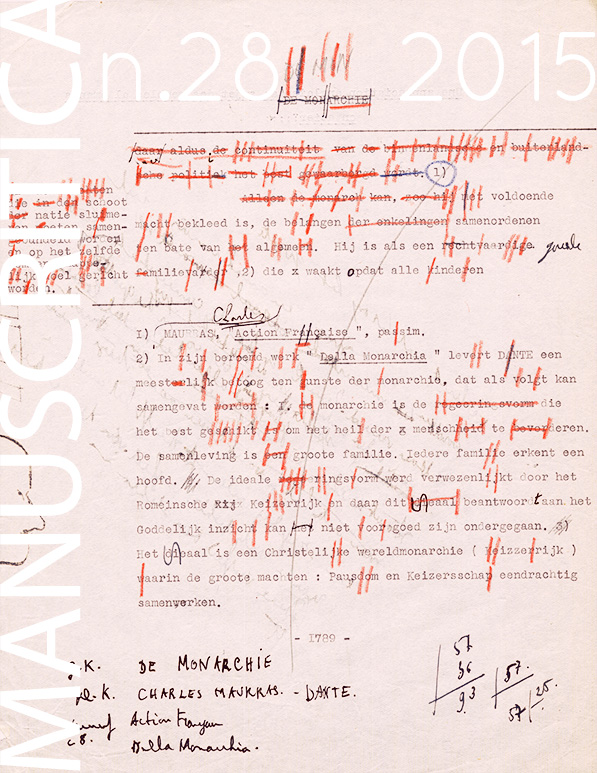Cognitive-genetic narratology and the fictional mind in To the Lighthouse
DOI :
https://doi.org/10.11606/issn.2596-2477.i28p94-111Mots-clés :
Cognitive Narratology, Extended Mind Theory, Virginia WoolfRésumé
Although modernist writers claimed to “look within” and portray the workings of the mind rather than the material world “out there”, recent criticism in cognitive narratology, by David Herman, and genetic criticism, by Dirk Van Hulle, has punctured the myth of an “inward turn” by demonstrating how fictional minds in modernist narratives can be considered from the perspective of the Extended Mind Theory. This paper wishes to corroborate this criticism by examining two chapters from Virginia Woolf’s To the Lighthouse, thus further demonstrating how the modernists’ intuitive shaping of fictional “extended minds” was informed by their own cognitive experiences with “thinking on paper”. I will touch upon the theoretical implications of combining genetic criticism and cognitive narratology, not only for a further renegotiation of the modernist project but also for the concept of authorship within the domain of genetic criticism. The central aim of my further research will be to investigate if the application of theories of distributed cognition can provide a re-definition of literary authorship.
##plugins.themes.default.displayStats.downloads##
Téléchargements
Publiée
Numéro
Rubrique
Licence
(c) Copyright Alison Luyten 2015

Ce travail est disponible sous la licence Creative Commons Attribution 4.0 International .











